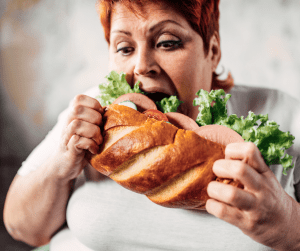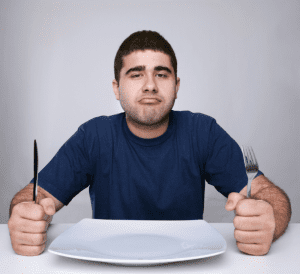Intermittent fasting has skyrocketed in popularity for its weight loss and health benefits. By cycling between periods of fasting and eating, intermittent fasting can stabilize blood sugar, increase energy, and give your metabolism a boost. However, it’s easy to make mistakes that can sabotage your results. Avoid these common intermittent fasting pitfalls:
Starting Too Rigorously
Don’t immediately aim for longer, more restrictive fasting windows. Ease into an intermittent fasting schedule gradually so your body can adjust. Start with 12-14 hour fasts before expanding your fasting window. Gradually increase your fasting window until you can go 24 hours without too much discomfort.
 Overeating in the Feeding Window
Overeating in the Feeding Window
Don’t go overboard eating whatever you want just because it’s your “feeding” time. Focus on nutritious, satiating foods like vegetables, proteins, and healthy fats. Avoid sugar crashes by limiting refined carbs. Your eating window should not be a free-for-all. Choosing foods that serve you nutritionally will make your fasting window a breeze.
Under-Eating in the Feeding Window
Don’t severely undereat in an effort to cut more calories. Consuming too few calories can actually slow your metabolic rate. Aim for healthy, moderate calorie intake within your feeding times with nutrient dense foods.
Fasting Too Frequently
Make sure to take 1-2 non-fasting days per week. Your body needs recovery time from fasting’s metabolic demands. Regular breaks prevent fatigue, headaches, and hunger spikes. You can, however, have moderate daily fasts where your fasting window is 12-16 hours. This gives you the benefit of the fast without depleting your energy stores.
Exercising in a Fasting State
Don’t do intense or prolonged exercise when fasting. Low blood sugar can lead to fatigue, dizziness, and poor workout performance. Save high intensity exercise for your feeding window when you have adequate fuel.
 Ignoring Hunger Cues
Ignoring Hunger Cues
Don’t force yourself to fast if you feel ravenous, fatigued, or unable to concentrate. Listen to your body’s feedback and break your fast if needed. Forcing yourself to power through hunger can backfire. You can avoid those severe hunger pangs if you are getting proper nutrition during your feeding times.
Staying Hydrated
Don’t forget to drink plenty of water and electrolytes like sodium, potassium, and magnesium during fasting periods. Proper hydration prevents headaches, cramps, and other symptoms. You will be less likely to feel severe hunger pangs when fully hydrated. Thirst often masquerades as hunger so make sure you are hydrated.
Avoid these missteps, and intermittent fasting can be a sustainable, effective strategy for better energy, blood sugar control, and a faster metabolism. Pay attention to your body, be patient with yourself, and you’ll reap the benefits.
Need help with a plan? Let’s strategize.
Want to hear about my Crowd Out the Bad Method to Conquer Cravings, Lose Weight, and Avoid Diabetes? Take the First Step with a FREE Consultation and Learn from My 135-Pound Victory Over Pre-Diabetes!

 Overeating in the Feeding Window
Overeating in the Feeding Window Ignoring Hunger Cues
Ignoring Hunger Cues





Good advice. I tried this last year for a few months, but I found it hard to stick with over time. I went back to my Mediterranean diet. It seems to work for me.
Of course everyone is different but in my experience, I have found it easy to maintain. There is a great book called “Fast Like a Girl” by Dr. Mindy Pelz that is focused on how women should fast based on their monthly cycle, even if they are post-menopausal. Give that a read before you try again. I bet it would help. However, if you choose to stick with the Mediterranean Diet, you have certainly made a healthy choice. Good luck!
Losing weight has so many theories that it is confusing to know where the truth lies and where the lies are selling you products, books, videos, CD’s, Subscriptions. etc.
As you point out, cutting calories will not work if the body is not getting the right amount of the right nutrients for proper health and energy demands.
There is not a single key to weight loss, it is more like a combination lock where the right amount of twisting must be done at the right time in the right sequence. Moving the body is another major part of using the extra calories that the body must consume to get the right amount of nutrients it requires.
Blog on !
No two bodies are exactly the same Doug. As you point out, it isn’t as simple as calories in, calories out. They have to be the right calories and starvation is never the answer. I help people find the plan that works best in their life. It won’t work if it isn’t sustainable.
My husband does IF of a sort and it seems to be working for him along with lots of walking…. as for me, I realize eating in moderation for all the meals is what works for me (I cannot fast)
Every body is different…what works for one body may not be good for another. It’s important to recognize what works for you and it appears you and your husband have it figured out Vidya.